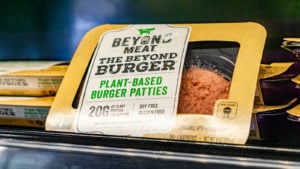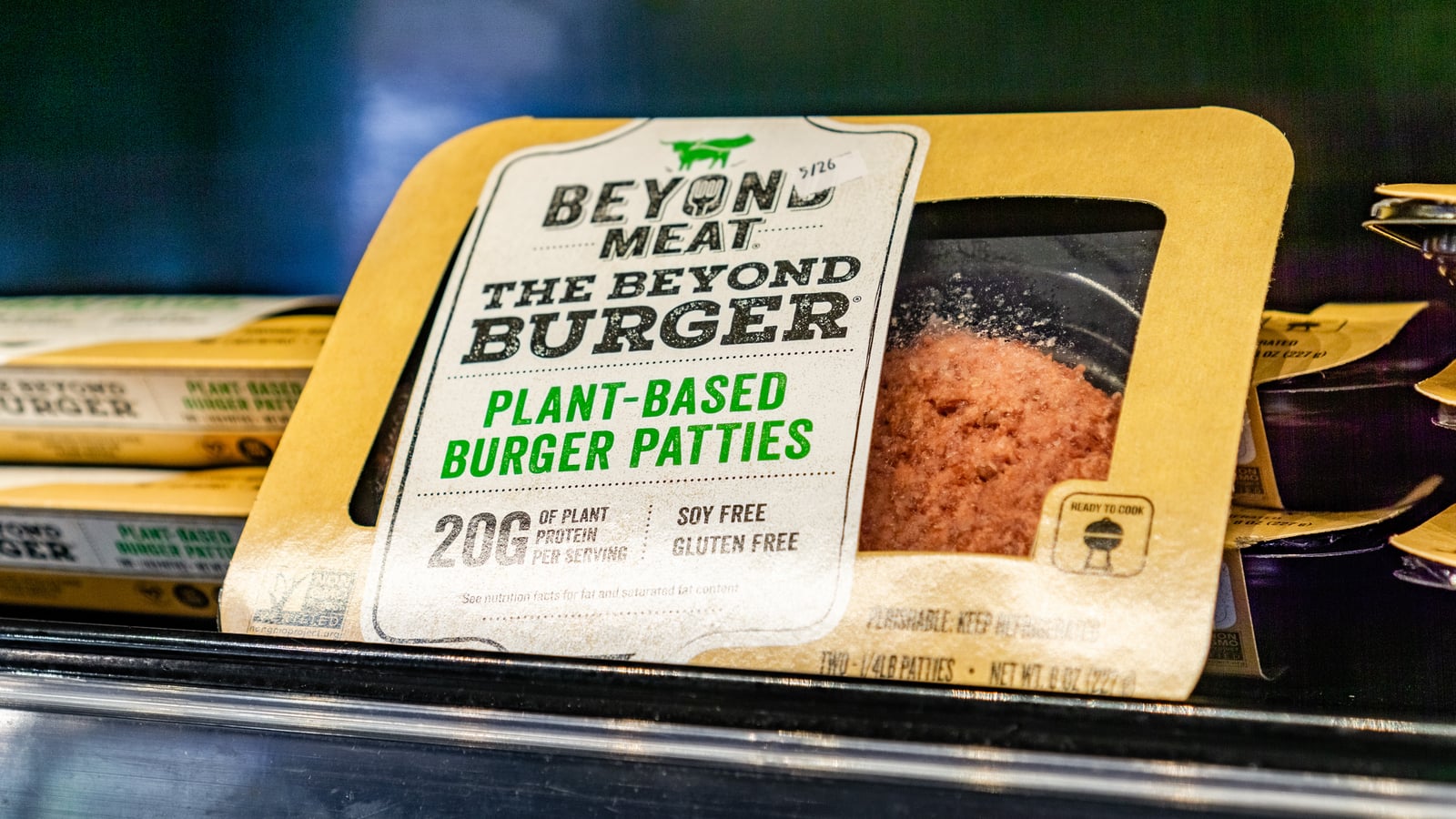Beyond Meat (NASDAQ:BYND) is a special case. Although BYND stock is a food stock, it trades like a tech stock.

I wrote in June it was priced well beyond fundamentals. It still is. This is despite two sharp plunges that have it trading 17% below its June 11 price.
Beyond Meat opened for trade July 2 at about $145 per share. That’s a market cap of $8.8 billion for a company with 2019 revenues of $297 million and no profits. The valuation is beyond belief … it’s beyond beyond. Even if it’s made with plants, it’s just hamburger! (OK, sometimes it’s sausage.)
Yet analysts like TV’s Jim Cramer keep pounding the table for BYND stock. He insists a deal with Alibaba (NYSE:BABA) to sell its products in China is a game changer.
But at 30 times revenue?
Beyond Happy
Beyond’s success and prospects have everyone pushing the happy button. The company’s products are already available at Starbucks (NASDAQ:SBUX) and YUM! Brands’ (NYSE:YUM) KFC chain.
CEO Ethan Brown says the novel coronavirus pandemic is a unique opportunity for the company to scale and get its costs below those of farm-raised beef.
Price has become the objection to products like Beyond’s burgers. Brown knows that and is addressing it. The Alibaba link means Beyond will soon open a plant in China. Its new value pack is priced at $1.60 per burger. That’s within 20% of the real thing. It’s what Brown calls a “ruthless business strategy.”
Getting into China is also a big deal. So is the grocery store packaging, which takes Beyond past its roots in restaurants and food service. Target (NYSE:TGT) and Walmart (NYSE:WMT) are both selling the value pack for this weekend’s cookouts.
Trouble Ahead?
But not all is wonderful in Beyond’s universe.
McDonald’s (NYSE:MCD), for instance, would be a huge “get” for the plant-based protein company. It had been testing Beyond’s patties in Canada, calling the result a “P.L.T,” for plant, lettuce and tomato. But that test ended in April with no fanfare, no announcement and no plans to bring it back. It was like the big audition where the director just said, “Thank you, next” and you have no idea what went wrong.
This, along with the stock’s price, caused some to push the panic button. Barclay’s dropped its rating from buy to sell, noting its continued reliance on restaurants for sales.
It’s not that McDonald’s is divorcing itself from Beyond Meat. The company sells plant protein in many markets, like Finland, India and South Africa. But a full rollout in North America, where it has almost 14,000 outlets, would require an enormous commitment. It may just not be ready for that. Or it may be looking at other suppliers. There are dozens to choose from including Tyson Foods (NYSE:TSN), Kellogg (NYSE:K), Hormel Foods (NYSE:HRL), Nestle (OTCMKTS:NSRGY) and Kroger (NYSE:KR).
The Bottom Line on BYND Stock
Since coming public in April 2019, BYND stock has traded for as much as $235 per share and for as little as $55, during the worst of the lockdown.
If I had been smart enough to buy at the IPO, or at that March low, I would be taking profits right now.
It’s not that I doubt the future of meatless meat. I just think it will be a competitive market. Beyond must do more than get its costs below that of beef and pork. Its brand must beat other, larger companies trying to do the same thing. Brown’s strategy isn’t ruthless, it’s essential to success.
While Beyond Meat has first mover advantage, as MySpace once did, it has yet to prove what I call “second-mover” advantage, like Facebook (NASDAQ:FB). The pioneer proves the market, the winner exploits it. Do that, and you’ll be a giant, my son.
Dana Blankenhorn has been a financial journalist since 1978. His latest book is Technology’s Big Bang: Yesterday, Today and Tomorrow with Moore’s Law, essays on technology available at the Amazon Kindle store. Follow him on Twitter at @danablankenhorn. As of this writing, he owned shares in FB and BABA.
